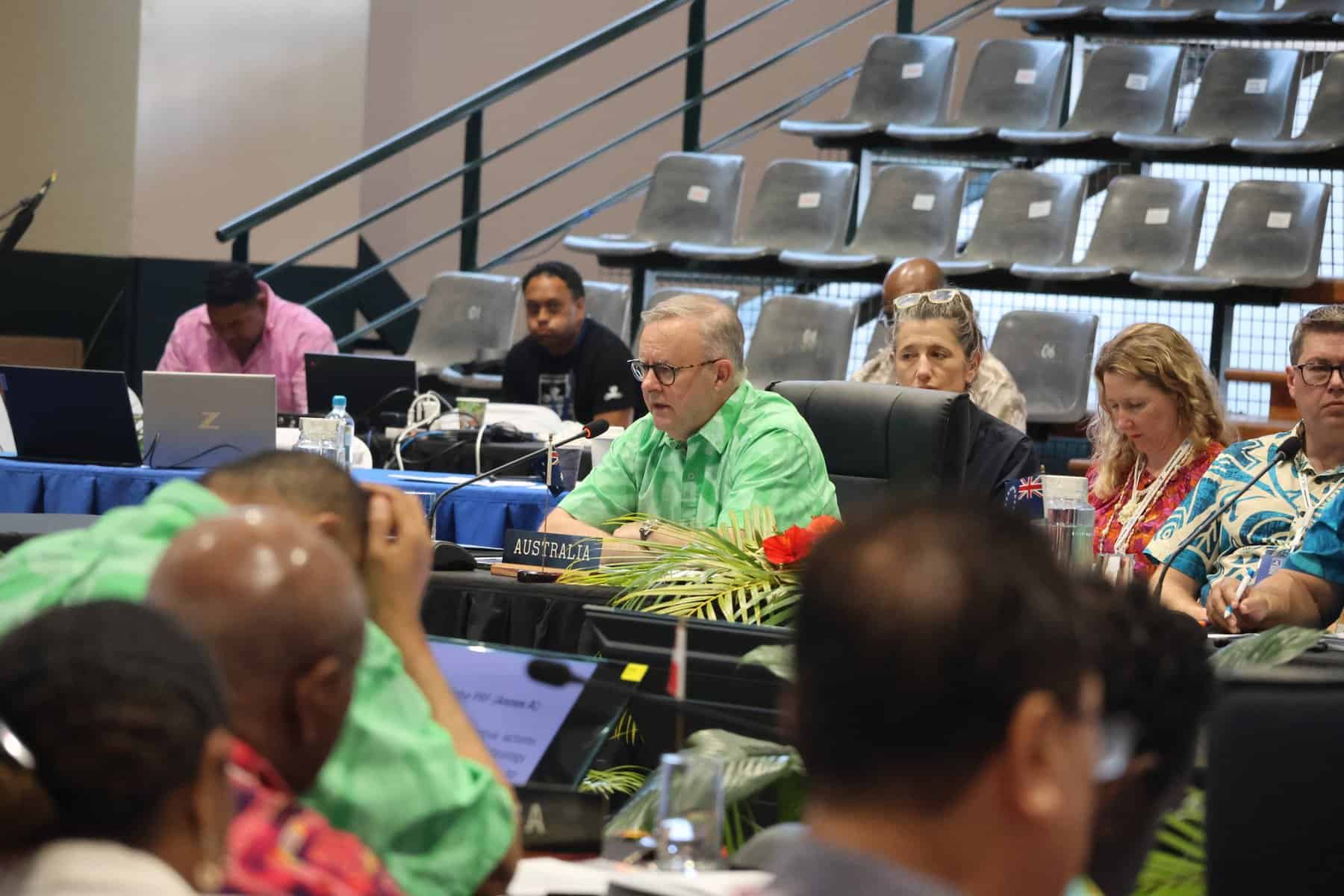Australian Prime Minister Anthony Albanese says he’s had “nothing but positive feedback” about his country’s climate change policies as the Pacific Islands Forum (PIF) is expected to test his government’s resolve on climate issues.
Albanese joined Pacific leaders in the Cook Islands this week for the annual meeting of regional powerbrokers.
He held formal bilateral talks with Tuvalu, Kiribati and the Cook Islands on the sidelines of the PIF leaders’ meeting, and informal discussions with other leaders from Nauru, Samoa, Tonga and the Federated States of Micronesia.
All nations are threatened by climate change, but Tuvalu is particularly so, given no part of its territory rises more than five metres above sea level.
While environmental NGOs and climate activists have scorned Australia’s expansion of fossil fuel extraction, Albanese said Pacific leaders had not done similarly during their meetings.
“They’ve been very positive about Australia’s position when it comes to climate change,” Albanese said.
“There’s a recognition that since the change of government, there’s been a change in Australia’s position and that we are taking the challenge of climate change seriously, not only domestically, but also helping in the Pacific.”
The PIF summit is Albanese’s second as prime minister.
On Thursday, he will board a flight to the idyllic island of Aitutaki, sailing around the picturesque turquoise lagoon as the group thrashes out the region’s top issues at the leaders’ retreat.
Joining climate as one of the top issues at the gathering are nuclear concerns, with Pacific leaders showing their resolve to keep the region nuclear-free.
The Pacific is stridently nuclear-free, a legacy of the region’s painful history with the testing of nuclear weapons by the United States, United Kingdom and France.
Australia’s AUKUS deal to obtain nuclear-powered submarines raises concern among many, given the sensitivity of nuclear issues.
Leaders in Kiribati, Tuvalu, Solomon Islands and Fiji have previously expressed reservations on different fronts, including the extravagant cost, which exceeds the entire annual GDP of PIF members except Australia and New Zealand.
PIF chair and Cook Islands Prime Minister Mark Brown has suggested the time could have come to “reinvigorate” the Treaty of Rarotonga, the nuclear weapons-free pact signed during the Cold War.
Albanese was less forthcoming on whether reform was needed, declining to respond to questions on whether he supported Brown’s calls. “We support the Treaty of Rarotonga. It is a good document. It has stood the test of time, all of the arrangements that have been in place, we’ve been consistent with that, and it retains our support,” he said.
